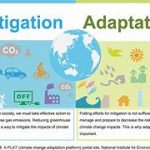Climate Change Denial: Psychological Perspectives and Strategies for Engagement
Climate change is one of the most pressing issues of our time, but despite overwhelming scientific evidence, a significant portion of the population still denies or downplays its existence. Climate change denial can range from outright rejection of scientific consensus to skepticism about the severity or human impact of the crisis. Understanding the psychological mechanisms behind this denial and developing strategies to engage with individuals who hold these views is crucial for fostering meaningful action on climate change. This article explores the psychological factors driving climate change denial and provides strategies for engaging those who deny or are skeptical of climate science.
Psychological Mechanisms Behind Climate Change Denial
- Cognitive Dissonance
Cognitive dissonance refers to the mental discomfort people experience when confronted with information that contradicts their beliefs or actions. For many, the reality of climate change forces a confrontation between their behaviors—such as driving gas-powered cars or consuming excessive resources—and the urgent need for action to reduce carbon emissions. To resolve this discomfort, some individuals engage in denial, convincing themselves that climate change is not as serious as it seems or that it isn’t caused by human activity. By denying or downplaying the issue, they avoid the psychological burden of altering their lifestyle or accepting the societal changes required to address the crisis. - Confirmation Bias
Confirmation bias is the tendency to seek out information that confirms pre-existing beliefs while disregarding evidence that contradicts them. People who are predisposed to climate change skepticism often gravitate toward media outlets, blogs, or individuals that align with their worldview, whether through political affiliations or ideological convictions. These sources may present cherry-picked data, misunderstandings, or misrepresentations of climate science, which reinforce skepticism. Confirmation bias makes it particularly difficult to shift these individuals’ perspectives, as they are less likely to entertain information that challenges their views. - Political and Ideological Beliefs
Climate change denial is often deeply intertwined with political and ideological beliefs. In some countries, particularly in the United States, the issue of climate change has become a polarizing topic. For individuals on the political right, accepting the reality of climate change can be seen as an endorsement of government regulation and intervention, which may conflict with libertarian ideals or free-market beliefs. The idea that addressing climate change may require increased taxes, government oversight, or restrictions on businesses can provoke a defensive reaction, particularly for those who believe in minimal government interference. This ideological divide makes climate change a political battleground, with denial serving as a means to preserve political and economic ideologies. - Fear and Psychological Distance
Another key factor in climate change denial is the psychological distance many people place between themselves and the consequences of global warming. For individuals who are not directly experiencing the visible impacts of climate change, such as extreme weather events, rising sea levels, or loss of biodiversity, the issue may feel abstract or distant. Psychologically, people tend to prioritize issues that have immediate, tangible consequences in their lives. As a result, climate change may not seem urgent or important when compared to more immediate concerns, such as job security or personal health. Fear of the unknown and the inability to directly connect with the global crisis leads some to dismiss the problem altogether. - Social Identity and Group Influence
Humans are inherently social beings, and group identity plays a major role in shaping individual beliefs and attitudes. Climate change denial is often a collective phenomenon, where individuals adopt the views of their social circles or cultural groups. If one’s social identity is strongly tied to a political party, a certain economic class, or a religious group that rejects climate science, individuals are more likely to embrace those views to maintain group cohesion and avoid social ostracism. This social pressure reinforces denial, making it even harder for individuals to accept or engage with evidence that contradicts their group’s perspective.
Strategies for Engaging Climate Change Deniers
While the psychological barriers to accepting climate change are significant, there are effective strategies that can help engage individuals in constructive conversations and, potentially, change their attitudes toward the issue. The goal of these strategies is not to forcefully challenge a person’s beliefs but rather to open up dialogue, build trust, and address underlying fears or misconceptions.
- Approach with Empathy and Understanding
One of the most important strategies for engaging climate change deniers is to approach them with empathy and a willingness to listen. People’s beliefs about climate change are often deeply personal, tied to their values, fears, and social circles. By creating a safe and non-judgmental space for discussion, individuals are more likely to let down their defenses and consider alternative viewpoints. Engaging in a calm, respectful conversation, rather than attacking or ridiculing their beliefs, allows for a more productive exchange. - Appeal to Shared Values
When discussing climate change with skeptics, it’s crucial to identify and highlight common values. Whether the person values economic prosperity, national security, or public health, framing climate change as an issue that aligns with those values can be a powerful motivator. For instance, emphasizing the economic opportunities created by renewable energy or the national security risks posed by climate change-induced resource scarcity can help skeptics see the issue through a lens that resonates with their concerns. - Present Climate Change as a Local Issue
Psychological distance can be a significant barrier to accepting the reality of climate change. However, people are more likely to engage with an issue if they perceive it as personally relevant. One effective strategy is to focus on local and regional impacts of climate change, such as droughts, floods, or rising energy costs. By showing how climate change affects their communities or their children’s future, individuals may be more inclined to take the issue seriously. - Utilize Trusted Messengers
It’s often more effective to have a conversation with a climate change skeptic when the message comes from someone they trust. This might be a family member, a friend, a religious leader, or even a local community leader. Trusted messengers are able to speak in a way that is more likely to be heard and considered, as they do not carry the baggage of being perceived as “outsiders” or political opponents. Using messengers that have credibility within the skeptic’s community increases the chances of breaking through the barriers of denial. - Encourage Small, Positive Actions
Rather than focusing solely on the doom and gloom of climate change, it can be helpful to encourage small, positive actions that contribute to environmental sustainability. For example, supporting local and organic farming, reducing waste, or transitioning to more energy-efficient appliances are actions that can be framed as practical and doable. This approach gives individuals a sense of agency and accomplishment, which may encourage them to take further steps to address climate change. By breaking the issue down into manageable actions, it becomes less overwhelming and more within their control. - Provide Accurate, Digestible Information
When presenting information about climate change, it’s essential to be clear and concise. Avoid overwhelming skeptics with technical jargon or highly complex scientific data, as this can reinforce their resistance to the issue. Instead, focus on simple, easy-to-understand facts, such as the overwhelming scientific consensus on climate change or the financial benefits of renewable energy. Visual aids, infographics, and local examples can also be helpful in making the issue more tangible and relatable.
Conclusion
Climate change denial is a multifaceted issue that is influenced by psychological, social, and ideological factors. Understanding these underlying mechanisms can help us better engage with those who are skeptical about climate change. Through empathy, respectful dialogue, and the use of effective engagement strategies, it is possible to bridge the divide and foster a greater understanding of the urgency of addressing this global crisis. While changing deeply held beliefs is a challenging task, offering relatable, evidence-based information and emphasizing shared values can help move the conversation toward meaningful action. Ultimately, tackling climate change requires collective effort, and engaging skeptics in constructive ways is a crucial step in making that effort successful.


